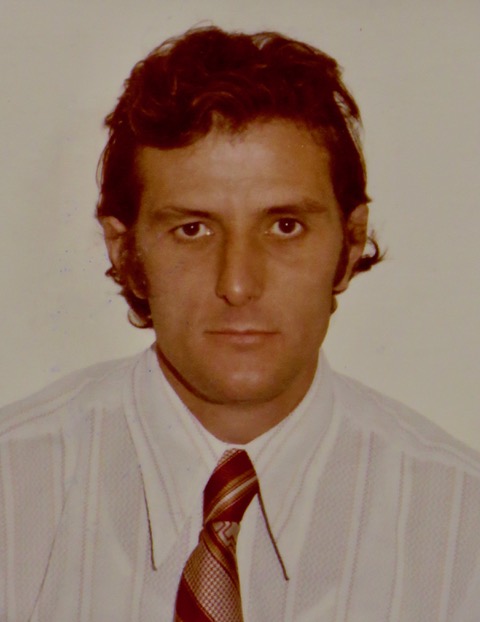 George F. Rose
George F. Rose
The Reverend Larry Lowe Jr. was a man never bereft of words but he was left speechless on the penultimate day of May 1979 when he discovered what he described as plant material packed inside one of two dictionaries addressed to him personally and which he had just collected from the nearby post office in Hamilton. As he sat in his office at the St. Paul A.M.E. Church he first prayed before picking up the phone and calling the police narcotics unit with news of his findings. Awaiting their arrival he made no further examination of the packet or its contents lying before him.
After Rev. Lowe duly handed the two dictionaries over to the Police, they were examined by Scenes of Crime Officers (SOCO) and their contents were confirmed to be illegal drugs (cannabis). Two fingerprints were also found on the cover of one of the dictionaries which were quickly identified by a police fingerprint officer as that of a particular suspect. This information was passed to Detective Inspector George Rose who was head of the Drug Squad at that time.
Detective Sergeant Dennis Ramsay and DC Ronnie Smith commenced their enquires into this matter leading to the trial of Carlton ‘Butch’ Minors, of St. David’s, who was accused of importing a pound and a quarter of cannabis into the Island hidden in two dictionaries. The three day trial got underway on Thursday, September, 27 September 1979 before the Acting Senior Magistrate, the Wor. K.C.Nadarajah. Counsel for the accused was Mr. Charles Vaucrosson.
The Crown alleged that Minors went to New York earlier in the year and hidden the drugs in two cut out dictionaries and posted them to the Rev. Lowe Jr. 35, at St. Paul A.M.E. Church in Bermuda. Crown Counsel Mr. Robin McMillan alleged that Minors was planning to pick up the parcel before the Rev. Lowe opened it.
The Royal Gazette (RG) reported on the proceedings of the first day as follows:
“Mr. McMillan showed Lowe the wrapping in which the dictionaries and the drug had arrived. Pointing to where the sender’s address was on the envelope, counsel asked Lowe if she knew of the address.
“Witness answered 'no'.
“Lowe also pointed out that although the sender’s name was her name, the first name, Deborah, had been spelt differently. On the package the name was spelt Debra.
“Witness also said that she had known the defendant for 10 years and was a casual friend.
“Under cross-examination by Mr. Vaucrosson, witness agreed that there was a possibility that there was a Miss Debra Lowe living in New York.”
“Dc Smith told the court that on May 30 1979 he received a telephone call which caused him to go to St. Paul A.M.E. Church. Upon arriving there he saw Larry Lowe who showed him the two dictionaries which contained drugs. He took custody of them as well as the wrapping.
“Witness said he saw the defendant at Police headquarters on June 27 along with Detective Sergeant Ramsey. The defendant was interviewed by the officers.
“Witness said that Detective Inspector George Rose had a conversation with Minors who then submitted a handwriting specimen.
“On July 4 Dc Smith said he went to the Immigration Department and received Minors’ departure and arrival cards from Inspector Perry Johnson.
Defence counsel asked Dc Smith what he would say if counsel told him that the parcel was not addressed to the Rev. Larry Lowe.
“Witness replied that counsel would have been mistaken. After looking at the envelope, witness agreed with counsel that the address said “Rev. Lowe Jr.” and not Rev. Larry Lowe Jr.”
“Mr. Perry Johnson, the Immigration Inspector, said that he had examined the departure and arrival cards of Minors. He said that Minors had left the Island bound for New York on March 18 and had returned on April 30. On June 26 he handed over the departure card to Dc Smith and on July 4 he handed over the arrival card.”
“[A senior clerk] attached to the letters department of the General Post Office, testified that on May 30 she was working at the general delivery window when Larry Lowe presented her with a green card which indicated that he had a parcel to pick up. Witness said she gave it to him.”
“Detective Constable Roderick Barclay conducted a fingerprint examination on the covers of the dictionaries and found impressions on the cover of one of the books. He photographed the two impressions he had found and then sent them to Detective Constable Keith Cassidy.”
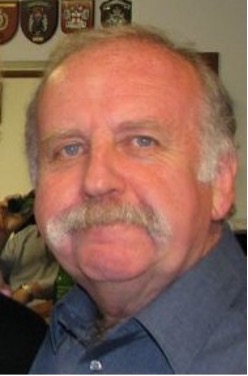
“Dc Cassidy said that on June 22 he received the negatives and photographs taken by Dc Barclay and on June 26 he took the defendant’s fingerprints. Dc Cassidy said that the defendant did not object to having his prints taken but refused to sign the form after his prints were made.”
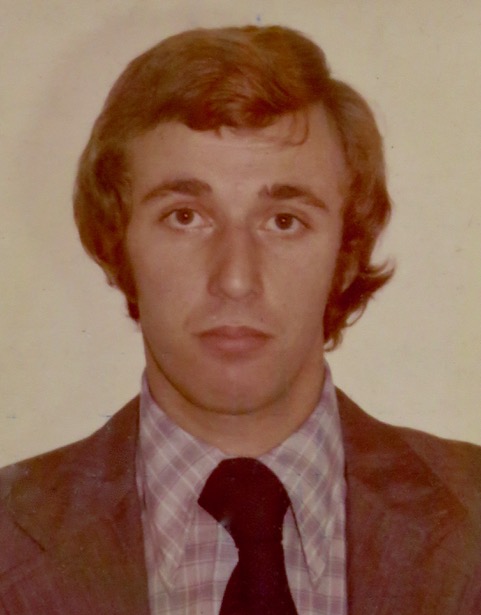
“Witness said that he made a comparison of the defendant’s prints and the prints found on the dictionary and identified the left thumb impression. He said that he marked 16 points of comparison and concluded that there was no doubt that the print on the dictionary was identical with the defendant’s left thumb.
“During cross-examination Mr. Vaucrosson asked if prints could be transferred and the witness answered that it was possible.”
“The court then heard from Detective Inspector David Chew who said that he had received the parcel’s wrapping and the handwriting specimens from Dc Smith and had sent them to the Metropolitan Police Laboratory in London.”
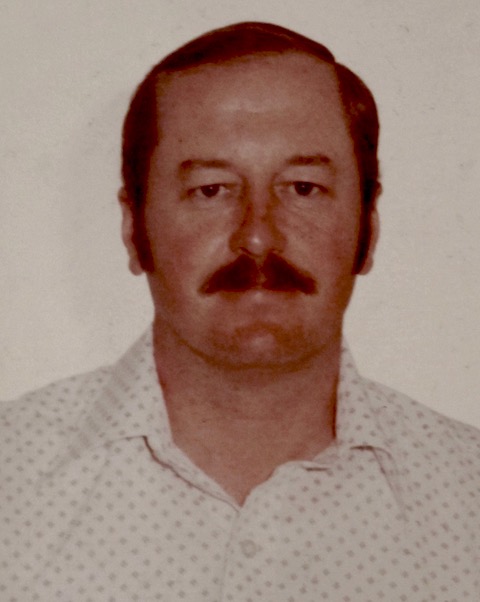
Sergeant Morris told the court that Minors had replied, “Me? No!”
Minors’ was then taken to the St. George’s Police Station where he was held until Dc Smith came to take him to Police Headquarters.
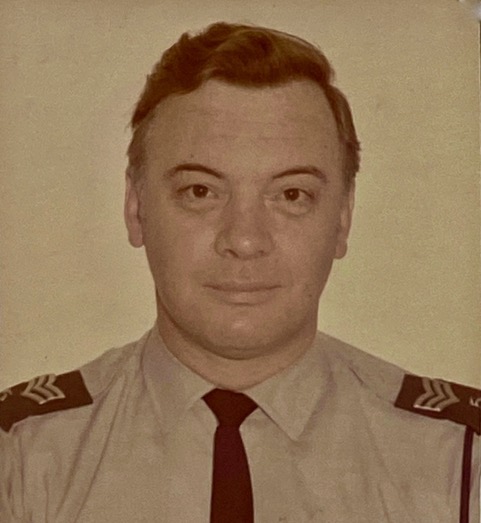 Patrol Sergeant John F. ‘Rigor’ Morris
Patrol Sergeant John F. ‘Rigor’ Morris
“Mr. Welch said that on July 11 he received the envelope in which the dictionaries and drug had been found and also Minors’ hand writing specimens. He said that after examining them he found that there were many similarities between the brown paper envelope and the specimens.
“He concluded that there was a high probability that the writing on the brown paper envelope and the specimens were made by the same person.
“He explained to the court that a high probability falls a little short of certainty.
“Witness said, “I cannot exclude that someone other than the defendant wrote on the envelope but the similarity is such that it is very unlikely that anyone but the defendant wrote the addresses on the envelope.”
“Witness said that the reason he was not completely certain was because there were some letters which did not have a great similarity.”
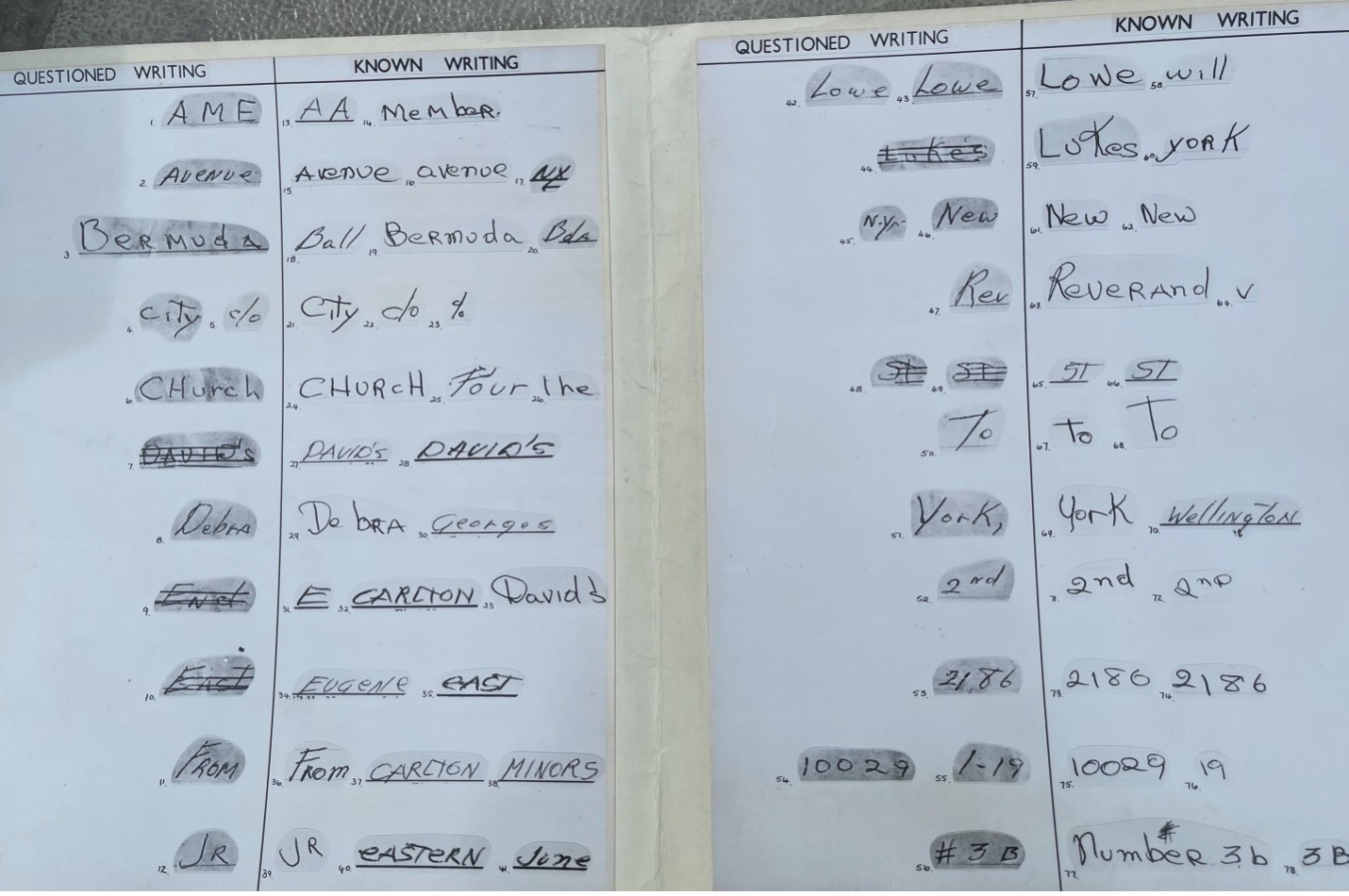
At this point the weekend intervened and when the trial resumed the following Monday, October 1, the court heard testimony from Reverend Lowe one of the prosecution’s final two witnesses. It was claimed that the drugs case was based on suspicion:
“Lowe testified that he opened one of the books with his letter opener and discovered what looked to be plant material inside. He then called the Police and 15 minutes later Dc Ronald Smith arrived and took the package away.
“Lowe said that the handwriting on the parcel was not known to him and that he was not expecting a package from his sister, Miss Deborah Lowe who had recently been in New York and who was named as the sender of the parcel.
“He agreed with Mr. McMillan, that the name Debra on the parcel was not the same spelling as his sister’s name, Deborah.
“Asked if he knew the defendant, Rev. Lowe said, “Yes I’ve known “Butch” for about 17 years. We were neighbours for many years in St. David’s and we have played cricket and football together, but we have not been close associates in recent years.
“Defence counsel chose not to cross examine Lowe but the magistrate asked witness if he knew of a Debra Lowe in New York.
“Witness replied, “Yes, sir. I do. I have a cousin who lives in Long Island but she spells her name, Deborah.”
“Rev. Lowe also said that he and his cousin do not write to each other and they only meet when he goes to New York or she comes here.”
“Witness said that when the defendant was asked if he had posted the package from New York, he replied, “I didn’t send any weed.”
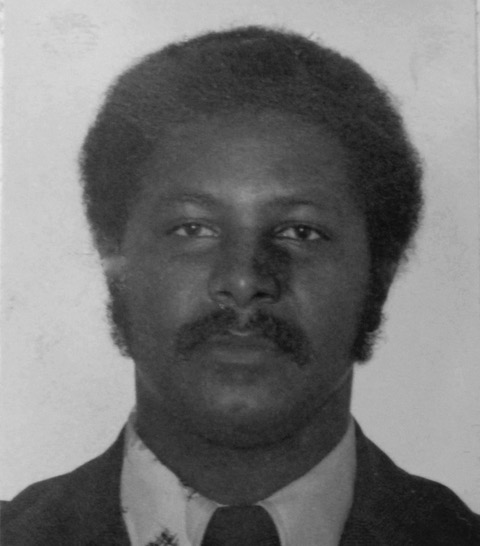 Detective Sergeant Dennis Ramsay
Detective Sergeant Dennis Ramsay
“Det. Sgt. Ramsay told the court that he conveyed the accused to Hamilton Police Station where Minors was searched and detained. The next day, witness said, he and Dc Smith took Minors to Prospect where they interviewed him again.
“Following the interview, Det. Inspector Rose came into the office and had a conversation with Minors.”
After reviewing the case status with DS Ramsay and learning that Minors had still not admitted his involvement in the matter, I confronted the accused on the afternoon of Wednesday, June 27, 1979 in an interview room at Prospect. At the conclusion of the cautioned interview I immediately recorded the following notes in my pocket book of what had transpired.
“2.25 pm. After a discussion with DS Ramsay I went with him to see Carlton Minors who I knew to be in custody in the Narcotics office interview room.
I saw Dc Smith with Minors whom I already knew. I took with me a copy of the Misuse of Drugs Act 1972 and gave him a copy of Section 36 (1) (b) and (2) of the Act. After cautioning him I said –
Butch, I draw your attention to Section 36 (1) (b) of the Misuse of Drugs Act 1972 which you are now reading and point out to you that in accordance with subsection (2) it shall be an offence for you to fail to comply with my request. I now read the section to you”.
I now ask you to submit a specimen of your handwriting for purposes of comparison with the writing seen on this envelope (shown to Minors) addressed to Rev. Lowe Jr. and which is found to contain two dictionaries containing cannabis.”
Minors said, “That’s cool. Give me some paper.”
Minors’ was supplied with a pen and blank paper.
I asked DS Ramsay who had been present throughout to dictate words to Minors in the prescribed manner from press columns contained in the Royal Gazette newspaper of that day. Minors’ was told to change his writing position at intervals as is recorded on the specimens.”
For the record section 36 of the Misuse of Drugs Act 1972 reads in its entirety as follows:
“After the conversation, DS Ramsay said that he dictated an extract from The Royal Gazette and also what was written on the envelope to Minors who wrote everything down, giving a sample of his handwriting.
“Counsel for the accused declined to cross-examine the witness and Mr. McMillan said that the prosecution’s case was finished.”
THE DEFENCE
After hearing from the final witness the accused was given the opportunity to respond to the allegations made against him:
Calling no witnesses, and in his own defence, the accused made an unsworn statement from the dock saying that he had nothing to do with the importation of the cannabis and that he knew nothing about it.
[It may be useful to recall that in this year of 1979 an old English Common Law right provided for an accused to make an unsworn statement from the dock if he wished to do so, but since it was not evidence sworn on oath, the accused could not be cross-examined.
The rule was subject to the following proviso: – that the failure of an accused to give evidence - on oath or otherwise - shall not be made the subject of any comment by the prosecution (although the judge may comment). While the effect of this rule was that every accused may give evidence for his defence, he was not a competent witness for the prosecution.]
SUMMARY BY THE PROSECUTION
“Mr. McMillan, in his summary, said that the prosecution’s case was divided basically into three categories.
“The first was the opportunity and facility for posting the parcel from New York.
“The second part was the fingerprint of the accused found on the inside of the parcel. Mr. McMillan told the magistrate that the fingerprint was concrete evidence and that it spoke for itself.
“The third category on which the prosecution’s case rested was the evidence given by the handwriting expert, Mr. John Welch from the Metropolitan Police Laboratory, who earlier in the case stated that there was a high probability that the handwriting on the envelope and the handwriting on the specimens given by the accused were the same.
“Mr. McMillan said that this evidence supports the rest of the case and that there could be no doubt that the accused was guilty”.
SUMMARY BY THE DEFENCE
“Counsel for the defendant, Mr. Charles Vaucrosson, said that the prosecution’s case was based entirely on suspicion. Mr. Vaucrosson said, “He (Mr. McMillan) has not established clearly if Minors did any writing or posting.”
“On the subject of the fingerprint, counsel said that the only print was found on the inside of the parcel on one of the dictionaries, not on the wrapping of the parcel.
“Counsel contended that the dictionaries could be found in many shops and airports and that if the defendant had posted the parcel, one would have expected to find a print on the wrapping.
“Mr. Vaucrosson also pointed out that the fingerprint was found on only one of the dictionaries. He said:
“The prosecution’s case falls down because of the lack of supporting evidence.”
“He also said that the handwriting evidence was not conclusive and that no one knew how this parcel was to be collected.
“Asking the magistrate to find his client not guilty, Mr. Vaucrosson said that there is a lot of suspicion in this case but no concrete proof. “And,” he added “suspicion alone does not prove a case.”
The magistrate rendered his decision the next morning Tuesday, October 2, 1979 when he convicted Carlton Minors of importing a pound-and-a-quarter of cannabis, and sent him to prison for two years and fined him $2,500.
The magistrate said a fingerprint on the inside of one of the dictionaries was proof that Minors had packed the drug into the hollowed out books.
“Supportive evidence given by handwriting expert Mr. John Welch from the Metropolitan Police laboratory in London was conclusive enough to find Minors guilty.
“Mr. Charles Vaucrosson, counsel for Minors, told the magistrate that his client would appeal the verdict. He had maintained, and still did, that he was not guilty.”
“The accused, Carlton Minors, told the Court of Appeal he had asked another lawyer to represent his case and so was waiting until June [1980] when the next Court of Appeal session would be held. Mr. Charles Vaucrosson, lawyer for the accused, explained that Minors wanted Mrs. Priya DeSoysa to represent him.
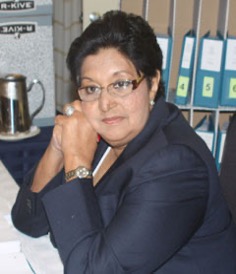
“Minors had been convicted and sentenced last October to two years imprisonment for importing one and a quarter pounds of marijuana in two dictionaries addressed to Rev. Larry Lowe Jr. at St. Paul A.M.E. Church. He was appealing the conviction and would be asking for bail pending the appeal at the next Court session.
“Bail for conviction is a very different thing,” replied the Hon. Sir Alastair Blair-Kerr, the Appeal Court President.
“If you are willing to stay in custody until we come back in June, we will put the application for leave to appeal conviction back. But don’t think you are going off on bail,” he told Minors.
“As long as you’re completely satisfied with staying in prison until June, we will consider your application,” he said.
“Minors then explained that some of his papers had already been sent to Mrs. DeSoysa in Jamaica and he wanted her to do the case.
“The Court of Appeal then agreed to adjourn his application until the next session in June.”
She also claimed that the Chief Justice had also erred in law when he dismissed Minors’ initial appeal to the Bermuda Supreme Court.
“Mrs. Levers said that on appeal to the Supreme Court in February, the Chief Justice had stated that the handwriting evidence could not be relied upon.
“But he upheld the conviction solely on the basis of the fingerprint evidence.”
“Mrs. Levers argued that it was wholly wrong for Minors to be in prison on the evidence of a single fingerprint. She also said that the prison sentence had been extremely harsh, and that it was “bad policy to imprison and fine a person.”
The Court of Appeal gave its judgment on Monday, July 7, 1980 when the (RG) reported under the heading:
“The appellant, Carlton Eugene Minors, had been convicted of importing one and a quarter pounds of marijuana into Bermuda into Bermuda in a parcel addressed to the Rev. Larry Lowe of St. Paul’s A.M.E. Church. He was sentenced to two years imprisonment and a fine of $2,500 or six months imprisonment in default of payment.
“But the Court of Appeal quashed the $2,500 fine because they said it appeared inappropriate. They noted under the Misuse of Drugs Act (Section 4) that a person found guilty of an offence was liable to a fine not exceeding $5,000 or imprisonment for a term not exceeding three years, or both.
“The fine imposed by the magistrate is a lawful sentence,” the three visiting judges said: “Nevertheless, a fine in addition to a term of imprisonment appears to us to be inappropriate in the circumstances of this case. A typical situation calling for a fine as well as imprisonment would be if there was reason to believe that the accused person had benefited financially.”
“There was no evidence of that in this case, nor was there any evidence adduced as to the appellant’s ability to pay the $2,500 fine. We therefore grant leave to appeal against sentence and we now quash that part of the magistrate’s order by which the fine of $2,500 was imposed. To that limited extent the appeal is allowed.”
The lingering appeal against his sentence of two years imprisonment was later abandoned by Minors as he continued to serve out his prescribed time at Casemates Prison where he had been lodged since his conviction in Magistrates Court on Tuesday, October 2, 1979.
EDITORS NOTE - As a postscript to this article it was most unusual to have the Magistrate, the Wor. K.C. Nadarajah, who tried and convicted the accused, be the father of the lawyer defending the accused, Mrs Priya DeSoysa Levers.
Priya DeSoysa Levers went on to become a Judge of the Grand Court of the Cayman Islands, but in 2010 she was dismissed from her position according to a statement from The Cayman Governor's Office which read, "Following upon the advice of the Judicial Committee of the Privy Council dated 29th July 2010, His Excellency The Governor, Duncan Taylor CBE, having received and considered that advice has in accordance with section 96(3) of the Cayman Islands Constitution Order 2009 removed Madame Justice Priya Levers from the Office of Judge of the Grand Court of the Cayman Islands. This is effective from the 6th August 2010.”
That advice from the council committee, released in a report on 29 July, came after a Tribunal of Inquiry held in the Cayman Islands that looked into a number of issues regarding the justice’s performance.
The Privy Council committee stated that it was “most concerned with those occasions when [Justice Levers] has been guilty in court of completely inexcusable conduct that have given the appearance of racism, bias against foreigners and bias in favour of the defence in criminal cases.
“They have been fatal flaws in a judicial career that has had many admirable features,” it said.